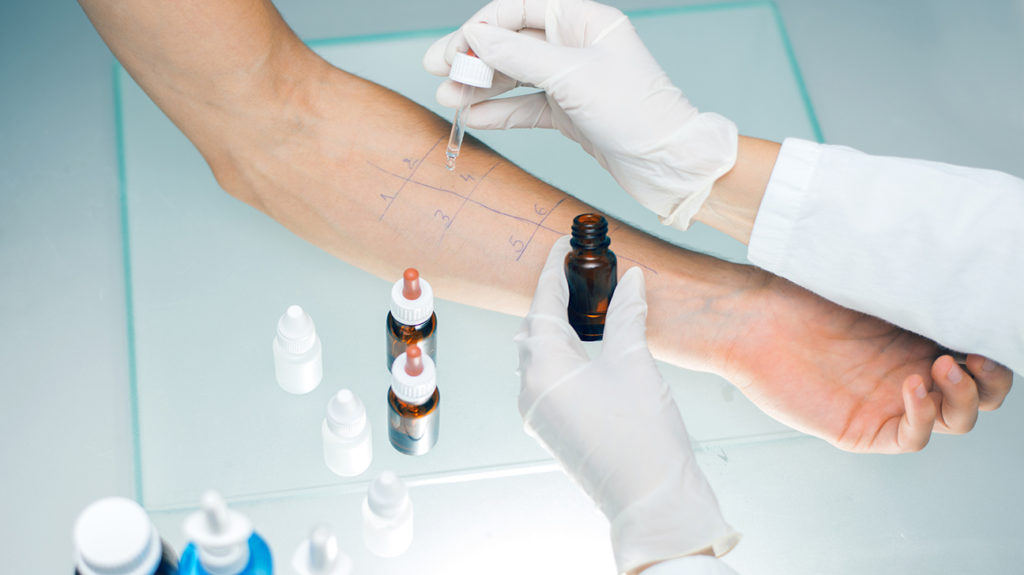
Best Immunologist in Perth
Best Immunologist in Perth


Dr Meilyn Hew
Immunologist
Dr Meilyn Hew graduated from the University of Western Australia and went on to specialise in clinical
Read More
and laboratory Allergy and Immunology. She also completed training in the Department of Clinical Immunology at John Radcliffe Hospital, Oxford, working primarily in adult immunodeficiency. Dr Hew is a Fellow of the Royal Australian College of Physicians and of the Royal Australasian College of Pathologists and a member of the Australian Society of Clinical Immunology and Allergy, Australia’s peak body for allergists and immunologists.
St John of God Wexford Medical Centre, Suite 42, Wexford Medical Centre, 3 Barry Marshall Parade, Murdoch WA 6150, Australia
61893322861
www.drmeilynhew.com.au


Dr Ben McGettigan
Immunologist
Dr Ben McGettigan is an Australian-based health professional. Ben is trained as an Allergy Specialist
Read More
& Immunologist and has a practice located in Wembley.

Dr Meera Thalayasingam
Immunologist
Dr Meera Thalayasingam started at JHC in August 2017 as a general paediatrician, allergist and clinical
Read More
immunologist. Her clinical practice involves all areas of paediatrics with a focus on allergies (airway, drug, food, insect and skin), anaphylaxis, immunotherapy and immunodeficiency. Meera comes to JHC from Ramsay Sime Darby Healthcare Malaysia where she worked as a Consultant Paediatrician, Immunologist and Allergist (Adult and Paediatric). Dr Meera Thalayasingam is highly experienced paediatric immunologist perth.
Suite 204, Specialist Centre Joondalup Health Campus, Joondalup WA 6027, Australia
61894009911
www.allergymedik.com

Dr Paul Zilko
Immunologist
Dr Paul Zilko is an Australian-based health professional. Paul is trained as an Allergy Specialist &
Read More
Immunologist, Pathologist (Immunologist) and has a practice located in Wembley.
![]()
Dr Benedita Itotoh
Immunologist
Dr Benedita Itotoh is a paediatrician & Paediatric Allergist. She commenced training in General Paediatrics
Read More
in Irelend and completed her training at Princess Margaret Hospital in Perth. She thereafter trained in Paediatric Allergy and obtained postgraduate qualification in Allergic diseases from The University of Western Sydney. Dr Benedita Itotoh is one of the best pediatric immunologist perth. Dr. Itotoh works across both public and private sectors. She manages children with allergic diseases ranging from eczema, asthma, allergic rhino-conjunctivitis (hay fever), food allergies / intolerances, eosinophilic oesophagitis, insect bite allergies & anaphylaxis.
History, Suite 5/2 McCourt St, West Leederville WA 6007, Australia
61861621615
www.perthpaediatrics.com.au

A/Prof Richard Loh
Immunologist
A/Prof Richard Loh studied at the University of Queensland and completed his training in paediatrics
Read More
at the Mater Children’s Hospital in Brisbane. He then completed his training in paediatric immunology and allergy at the Children’s Hospital in Boston and Harvard Medical School. A/Prof Richard Loh is an Australian-based health professional. Richard is trained as an Allergy Specialist & Immunologist, Pathologist and has a practice located in Wembley.

Dr Richard Nolan
Immunologist
Dr Richard Nolan studied at the University of Western Australia, graduating in 1996. He worked his residency
Read More
at local adult and paediatric hospitals. Following his consultant physician exams in 2002, he then focused on working and researching in the field of allergy. Dr Nolan has published and presented on allergic rhinitis, immunotherapy (desensitisation), peanut allergy, insect venom allergies, drug and skin allergies.
If you find yourself to be in a situation where finding the best Perth Immunologist this. Below is a list of the top Immunologist in Perth. To help you find the best Immunologist Perth located near to you, we put together our own Perth Immunologist list based on patient reviews.
What is Immunology?
In human medicine, immunology refers to the teaching of the human immune system, i.e. the biological and biochemical basis of the physical defense against pathogens.
She examines the reaction of the organism to the penetration of exogenous substances, i.e. deals with the organic detection and defense mechanisms and their disorders. Immunology is an independent subject within internal medicine.
The immunology deals with the defense mechanisms of the body and its disorders. The immune system is the bulwark against invading harmful bacteria, viruses, fungi, parasites and poisons.
If the immune system is weakened, it is easy for such intruders. An excessive immune reaction, such as occurs, for example, in allergies and autoimmune diseases, is also problematic.
The tasks of immunology include: Direct support of the body’s defenses , e.g. through vaccinations, therapeutic antibodies or antisera in the event of poisoning. Immune stimulation , i.e. the strengthening of the immune system in the case of acquired or congenital immunodeficiency (e.g. in the case of HIV or after cancer therapy). Immunosuppression , i.e. the dampening of the immune system in the event of allergies, autoimmune diseases (such as multiple sclerosis , rheumatoid arthritis , ulcerative colitis , Crohn’s disease ) and after transplants in order to prevent a rejection reaction. Immunity & Immune System: The unspecific defense system (immunity) is innate and is not directed against a specific substance but against all pathogens. This innate immune response consists of a number of physical (e.g. skin and mucous membrane barriers) and biological protective mechanisms. It enables resistance to the effects of certain microorganisms. In this context, resistance is the sum of all innate, non-specific, constantly active defense mechanisms of an organism directed against a large number of pathogens.
The non-specific immunity consists of different components, all of which have the task of destroying and breaking down structures foreign to the body. Put simply, the fight follows the following scheme: cells that have been attacked by bacteria secrete a chemical signal substance (interferons), which is recognized by so-called phagocytes (granulocytes and macrophages) and thus enables the affected areas to be located. The phagocytes find the affected tissue and eat and digest the attacked cells and pathogens. This process is called phagocytosis.
Another system of unspecific defense against pathogens is the so-called complement system. It consists of various proteins (complement factors), most of which are produced in the liver. The marking of hostile cells for recognition by the phagocytes is an essential task of the complement system in the non-specific defense reaction.
With the specific defense – also known as adaptive immune response – the body in turn produces so-called antibodies, which specifically (i.e. very precisely) match a certain pathogen (the so-called antigen) and render it harmless. The detection of antibodies is important in diagnosing infections.


